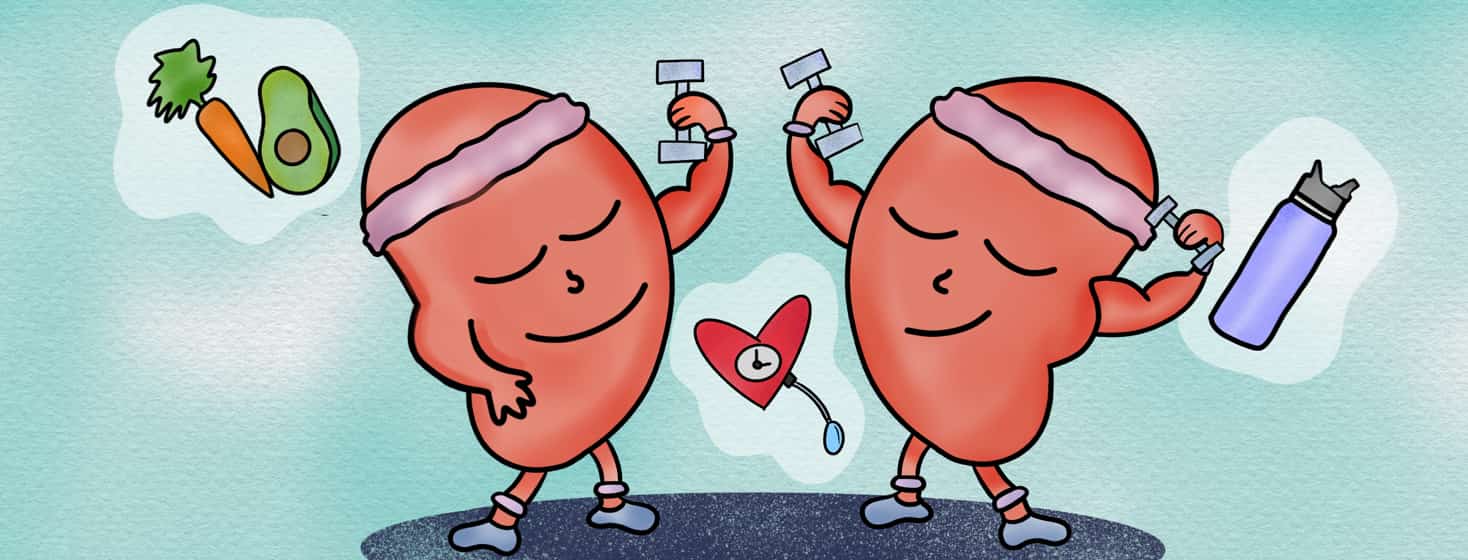Dialysis and Kidney Disease
Reviewed by: HU Medical Review Board | Last reviewed: February 2023 | Last updated: April 2024
Dialysis is a type of treatment for people who have kidney failure, also known as end-stage kidney disease (ESKD). Over time, people with rare kidney diseases can develop enough kidney damage that ESKD occurs.1,2
Your kidneys filter the extra fluids and waste from your blood. Kidney failure happens when your kidneys cannot do this job anymore. This leads to a buildup of waste in the body, which makes you feel very sick.1,2
When your kidneys have lost about 85 to 90 percent of their function, you will feel the bad effects and symptoms of failed kidneys. At this point, you will need dialysis or a kidney transplant.2
How does dialysis work?
Dialysis uses a special machine to clean your blood. This machine essentially does the work of your kidneys.1,2
During dialysis, the machine filters extra salt, waste, and fluids from your blood. In doing so, it also:2
- Helps control your blood pressure
- Maintains a safe level of potassium, sodium, and bicarbonate in your blood
For most people with kidney failure, kidney function will never improve. They will need dialysis for the rest of their life unless they are a good candidate for a kidney transplant.1
What are the types of dialysis?
There are 2 types of dialysis: hemodialysis and peritoneal dialysis (PD).1-3
Hemodialysis
During hemodialysis, you are connected to a machine that cleans your blood. Your blood is sent to the machine through a needle and tube, where it is cleaned. The clean blood is then returned to your body.1,3
On average, one round of hemodialysis takes about 2 to 4 hours. Hemodialysis can be done at a dialysis center (in-center hemodialysis) or at home (home hemodialysis).1,3
For in-center hemodialysis, you will need several treatments per week. A nurse or dialysis technician gives you the treatment.1,3
People who opt for home hemodialysis do treatments more often – about 4 to 6 days per week. You and a partner can give you the treatment in your home once you both have received proper training.1,3
Take some time to decide which type of hemodialysis works with your daily routine and lifestyle. Whatever type you choose – whether in-center or home – you and your doctor will come up with a schedule that works for you.3
Peritoneal dialysis
With peritoneal dialysis (PD), a solution is put in your belly via a thin tube (catheter). This solution, called dialysate, cleans your body. It stays in your belly for a few hours and is then drained out through the same catheter. More fluid is then replaced.1,2,4
This process is done several times each day. It can also be automated using a special machine called a cycler at night.4,5
PD is done at home rather than in a treatment center. While the solution is inside your belly, you can go about your day and do most normal daily activities.1,2,4
What are the possible side effects?
There are side effects of dialysis that you should be aware of. Side effects may include:1-4
- Irritation or pain at the access site
- Low blood pressure
- Itchy skin
- Fatigue before and after treatments
- Nausea and vomiting
- Headaches
- Muscle cramps
- Anemia
- Bone problems
- Blood clotting
These are not all the possible side effects of dialysis. Talk to your doctor about what to expect from dialysis. If you have any concerns about the side effects you are having, tell your doctor.1,2
Other things to know
Each type of dialysis has advantages and disadvantages. Which method you choose depends on your:1-4
- Overall health
- Other medical needs
- Comfort with giving your own treatment
- Lifestyle
Before beginning dialysis treatment for ESKD, tell your doctor about all your health conditions and any other drugs, vitamins, or supplements you take. This includes over-the-counter drugs. This will help your medical team determine which dialysis treatment is the best option for you and your rare kidney disease.1-4

Join the conversation